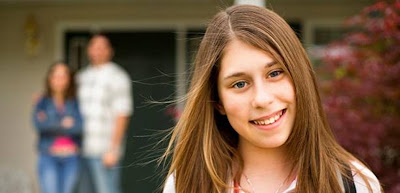
It’s a balancing act for parents, trying to balance independence while providing effective parental monitoring skills. The conundrum for many parents is that they want to trust their kids to be home alone, yet many recall from their own teen years that inevitable tug toward the forbidden.Studies show that late afternoons—the time after school and before parents get home from work—are the prime time for kids to try out forbidden behaviors, like drinking alcohol.
"They're looking for trouble, and exploring and pushing boundaries" says [William L. Coleman, professor of pediatrics at the University of North Carolina, Chapel Hill] "That's normal."
It's important for parents to recognize that there's a lot of variability among kids. Some will push the boundaries in reckless, dangerous ways, like experimenting with sex and drugs. The Centers for Disease Control and Prevention's Youth Risk Behavior Surveillance System says that more than 75 percent of high school students have experimented with alcohol, 38 percent report that they've tried marijuana, and 48 percent have had sex.
Coleman says the developing brain tends to get a little reward for risky business.
"Getting that rush of adrenaline, and then talking about it to your friends," says Coleman, "that's huge."
The Partnership for a Drug-Free America recommends:
The most important time of day to monitor is after school from 3 p.m. to 6 p.m. Kids are at the greatest risk for abusing drugs during these hours. Call your child's school to find out about adult-supervised activities he can take part in during these hours. Encourage her to get involved with youth groups, art or music programs, organized sports, community service or academic clubs. Follow up with your child to make sure he is actually going to the program he has chosen.More parental monitoring tips are available here.


No comments:
Post a Comment